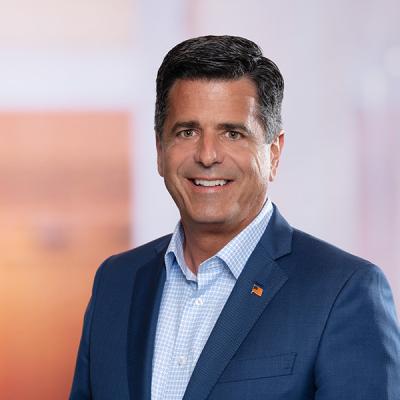FY2019 Massachusetts Budget Update: House Ways and Means Budget
On Wednesday, April 11, the House Ways and Means Committee proposed a $40.991 billion budget for FY2019 that represents an increase of $1.24 billion, or 3.1 percent, above FY2018 spending levels. The budget proposes $83 million more in spending than Governor Charlie Baker recommended in the FY2019 budget he filed in January.
This budget was the first proposed by the new Chairman of the House Ways and Means Committee, Representative Jeffrey Sánchez. It notably calls for greater oversight of the state police, increases the Earned Income Tax Credit, and rejects the Governor’s plan to shift Medicaid recipients to comparable private Health Connector plans.
The budget also increases unrestricted local aid by $37 million and provides a $124.6 billion increase for Chapter 70 spending. It makes an $88 million deposit into the Stabilization Fund, bringing the balance to $1.463 billion, and does not include any new broad-based taxes.
Additional budget highlights include:
Health Care
- The spending plan does not include Governor Baker’s proposal to make non-disabled adults with incomes above 100 percent of the federal poverty line eligible for subsidized insurance on the Health Connector exchange rather than MassHealth. The legislature has rejected this proposal on several occasions since the administration first proposed it last summer.
- MassHealth is funded at $16.2 billion, or $302.9 million above the level recommended by Governor Baker.
- The budget provides a five percent adjustment to the MassHealth inpatient and outpatient reimbursement rates for disproportionate share hospitals.
- The Health Safety Net is funded up to $15 million.
- The budget does not include provisions included in the Governor’s budget that would permit changes to the financing and coverage of prescription drugs in the MassHealth program, including enhancing MassHealth’s ability to negotiate supplemental rebates with drug manufacturers and allowing it to establish a closed formulary.
- A new “Safety Net Provider Trust Fund” is established and funded at $167.64 million. The funding is for hospitals that qualify for Safety Net Provider Payments under the current MassHealth waiver. This fund was also established in the Governor’s budget.
- $14.8 million is allocated for qualified pediatric specialty units.
- An Office of Health Equity is established within the Executive Office of Health and Human Services tasked with addressing disparities in access to quality health care and outcomes based on racial, ethnic, and disability status.
Public Health & Human Services
- A Public Health Grant Trust Fund is created, which is to be administered by the Department of Public Health for collaborating with nonprofit organizations to participate in competitive grant opportunities.
- Funding for the Department of Mental Health is increased by $97 million, a 12.6 percent increase above FY2018 levels.
- $137.2 million is proposed for the Bureau of Substance Addiction services, including $3.5 million to open five new recovery centers.
Taxes and Revenue
- An outside section repeals a mandate included in last year’s budget that called for the Department of Revenue to develop regulations implementing a daily sales tax remittance system. The section instead establishes a special commission to study and report on the feasibility and cost-effectiveness of implementing a monthly estimated sales tax payment structure.
- The budget adopts Governor Baker’s proposal to increase the Earned Income Tax Credit from 23 percent to 30 percent of the federal credit.
- Unlike Governor Baker’s budget, the House plan does not anticipate revenues from a tax on short-term rentals, as lawmakers continue to debate legislation regulating that industry.
- The budget assumes that $259 million will be generated in FY2019 as a result of the Employer Medical Assistance Contributes levied in last year’s budget; $63 million will be generated from recreational marijuana sales; $44 million will be generated from the opening of the state’s first resort casinos; and $65 million will flow to the state from companies repatriating foreign profits as a result of the recently enacted federal tax law.
Public Safety
- The budget includes a series of reforms in response to the recent controversies at the state police. It creates a special audit unit within the state police that would monitor the quality, efficiency, and integrity of the department’s operations and prevent the abuse of public funds. The unit would operate independently and be managed by a full-time director appointed by the Inspector General. The budget also recommends the creation of a special legislative commission to study hiring and promotion policies at the state police, funds a study at the Collins Center for Public Management at UMASS Boston focused on potential management reforms, and funds the department at approximately $6 million below current levels.
Education
- Chapter 70 aid to school districts is boosted by $124.6 million to a total of $4.83 billion, exceeding the Governor’s plan by $20.9 million.
- $90 million is allocated for charter school reimbursement.
- $15 million is allocated in aid to school districts receiving students displaced by the hurricanes of 2017.
- $62.5 million is provided for regional school transportation.
Local Aid
- $1.1 billion is allocated for Unrestricted General Government Aid (UGGA), which matches Governor Baker’s recommendation and represents an increase of $37 million above FY2018 levels.
Transportation
- The House rejected Governor Baker’s proposal to shift certain MBTA employee salaries from its operating budget onto its capital spending plan. The budget instead included $154 million in stopgap funding for the agency, which is $27 million above what Governor Baker proposed.
Next Steps
Looming over the budget process is the uncertainty in the state’s tax policy created by two proposed ballot questions on track to appear before voters in November — a “millionaire’s tax” raising taxes on high income residents and a cut to the state sales tax. These ballot questions would affect the state’s revenue picture if approved and force lawmakers to make adjustments to the budget. Representative Sánchez said the House did not consider the impact of either proposal when crafting their budget but would do so if either passes.
House members have filed a total of 1,400 amendments, which will be debated the week of April 23. After the full House debates the Ways and Means proposal and approves a final plan, the process will shift to the Senate. Under the leadership of Senator Karen Spilka, the Senate Ways and Means Committee will release its own plan that the full Senate will consider in May. A conference committee will negotiate differences between the House and Senate versions in June. The final budget must be signed into law by the beginning of the next fiscal year on July 1, 2018.
ML Strategies will continue to monitor and report on developments in the budget process and policy proposals coming out of the House and Senate.

FY2019 Diversity Lottery Instructions Are Now Available
September 20, 2017| Alert|
Authors

Julie Cox
Steven A. Baddour
ML Strategies - Executive Vice President & Director of Operations
Daniel J. Connelly
ML Strategies - Senior Vice President and Compliance Officer

Caitlin Beresin



